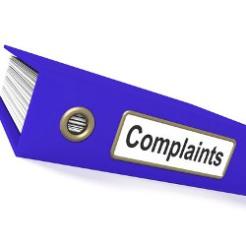A number of submissions to the committee of MPs inquiring into the regulation of the charity sector have called for an independent and impartial process to be set up to hear complaints against charities.
Caroline Aldiss, who served on the panel of Volunteering England’s Volunteer Rights Inquiry and is now a member of its Call to Action Progress Group, told the Public Administration Select Committee that a Charity and Volunteering Standards Board was needed to provide an independent assessment of charity complaints.
Aldiss quoted Ipsos Mori research showing that 91 per cent of the public are under the misconception that the Charity Commission is responsible for investigating complaints about charities, and added that the Commission receives 2,000 phone calls every year about issues outside of its remit. Meanwhile, over two-thirds of charities have no complaints procedure and of those that don’t, four in five say they don’t need one.
Aldiss said that she had had personal contact with many dedicated volunteers over recent years who had felt very badly treated by their organisations.
Volunteers that participated in the Volunteer Rights Inquiry were overwhelmingly in favour of an independent means of redress when things go wrong, Aldiss said. She added that both Lord Hodgson and Jodi Berg, the former independent complaints reviewer of the Charity Commission, had acknowledged the need for external adjudication.
Aldiss said an independent standards and complaints board could be used and paid for by the private sector and the sporting sector as well as the voluntary sector, with some set-up funding from government.
“The Charity and Volunteering Standards Board would be a cost-effective way of taking the sector into the 21st century helping protect it against fraud, adverse press exposure, protracted complaints and litigation,” she said.
“I hope that the recent Volunteer Rights Inquiry, this Charities Act review, and…the merger of Volunteering /England and NCVO, will provide the opportunity to set up a new standards-setting body the sector can be proud of.”
‘Trustees can be judge and jury in complaints against themselves’
A similar call was made in a separate submission from Louisa Hutchinson, a member of a “well-known charity” who is currently embroiled in a dispute with the charity’s trustees and with the Charity Commission over what she claims is its failure to take action in the dispute.
Hutchinson said: “I would like to recommend to the Committee that in order to maintain public trust and confidence in charities it is important that all charities should have a complaints policy with an element of independent review for the use of members, volunteers or service-users of charities.
“In order to prevent the majority of abuses of power by governors and consequent time-consuming and probably fruitless applications to the Charity Commission for justice, I think it is essential not only that all charities should have a complaints procedure, but that in a serious and unresolved complaint against one or more governors that this process should contain an element of independent review."
She went on: “In many cases including my own, boards of governors can act as judge and jury in complaints against themselves or unilaterally declare a complaint closed, secure in the knowledge that the Charity Commission will regard this as entirely a matter for the complainant and the trustees of the charity to resolve.
“As things stand, exposure and litigation would seem to be the only option for members who have serious unaddressed complaints about governors. Most people have neither the courage nor the means for either of these two actions.
“It is quite wrong that only the very rich can afford justice when faced with rogue governors who, as long as they close ranks, can under the current system act above the law with impunity.”
Support from former Commission whistleblower
Other submissions echoing the call for an independent complaints process for the sector included those by Volunteering England’s Call to Action Progress Group, Lewis Smith, a long-time charity volunteer, and David Orbison, the former Charity Commission employee who used a protected public interest disclosure to ‘blow the whistle’ on what he claimed was a miscarriage of justice by the Commission in relation to its handling of a regulatory investigation.
In his submission, Orbison wrote: “A balanced approach to this whole case could have been achieved by appointing an impartial and truly independent investigator who took evidence from all those involved.”
Resistance from Navca
The proposal did not find much favour with CVS umbrella body Navca, however. Its submission said: “In general, organisations need to take responsibility for addressing and resolving their own complaints and disputes.
“Where the charity is delivering a taxpayer-funded service, there will normally be provision within the agreements for resolving complaints about the service.
“Where an organisation is operating within the law and is not delivering a taxpayer-funded service, we think there is limited grounds for further statutory intervention in how the organisation is run. We also agree with Lord Hodgson that we would not want an Ombudsman set up.”









